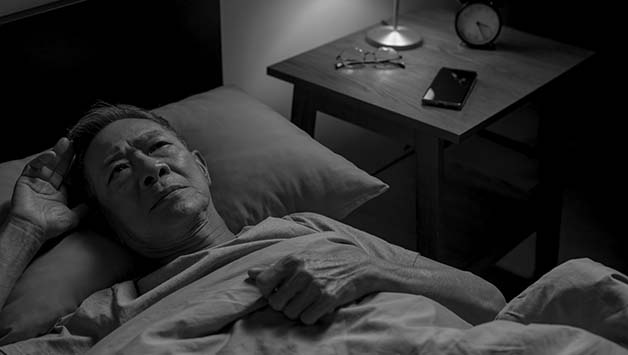
Quality sleep is an important pillar of good health, along with exercise and a balanced diet. Yet, falling asleep and staying asleep don’t always come easy. This may be especially true as you grow older and face health issues that come with age. In fact, almost half of people age 50 and over report problems with sleep.
Although, aging is not a reason for poor sleep itself, so the good news is, better slumber as an older adult is possible. Learn why sleep matters so much if you’re over 50 and how to get good sleep as part of your health routine.
Sleep helps your brain and body recover from each day’s activities. Without quality sleep, you lack energy and focus — and could increase your risk of falling. It also means missing time for restoration, which can have long-term effects on your body.
Research finds that small amounts of sleep loss can damage DNA and turn on genes that speed up aging. This also raises the risk of such issues as high blood pressure and weight gain and the potential for developing chronic diseases, like diabetes, dementia, and heart disease. These threats make it important to get the right amount of sleep.
It’s often believed that seniors need less sleep. Yet, nothing could be further from the truth, considering how critical sleep is for good health. A recent study finds that regularly sleeping less than five hours every night increases the risk for multiple chronic diseases. These may include cancer, diabetes, heart disease, Parkinson’s disease, and mental disorders. The risk of facing these issues and others builds with age, specifically a 30% greater risk at age 50, 32% at 60, and 40% at 70.
Still, it’s important to not get too much sleep. The risk of multiple diseases also increases when you sleep longer than nine hours. This begs the question: How much sleep do you need in your 50s, 60s, and 70s?
Older age does not come with any new sleep requirements. All adults should aim for seven to nine hours every night, so it’s important to get in front of any sleep issues.
As you age, you naturally experience changes in your circadian rhythm — your 24-hour internal clock that tells you when you’re tired. This is due to the aging of the part of your brain that controls these rhythms. You also begin to produce less melatonin — the hormone that controls your sleep-wake cycle — and you may spend less time in the sunlight as an older adult. Both factors impact your circadian rhythm.
On top of these changes, half of older adults cite a trip to the bathroom as a cause for waking, while almost 25% have trouble sleeping due to worry and stress. Other issues impacting sleep may include pain from illnesses, medication effects, and sleep disorders.
If you suffer from a sleep disorder, you’re not alone. More than 50 million Americans have one, and there are over 80 identified disorders.
Insomnia is a common disorder among older adults. It not only affects your ability to go to sleep, but also to stay asleep. It’s diagnosed if you have issues for a minimum of three nights a week for three months or more. Seniors with chronic illnesses or mental health issues are especially at risk. Insomnia can also affect retirees who lack a set schedule and experience less social interaction.
Another prevalent sleep disorder is sleep apnea, which is when breathing stops and restarts during sleep. Movement disorders, like restless legs syndrome, can also inhibit the relaxation necessary for sleep.
Maintaining a bedtime routine may be the most important thing you can do for better sleep. If you’re wondering how to maintain a regular sleep schedule as you age, it’s as simple as going to bed at the same time every night, although it takes discipline. These additional sleep tips can increase your odds of getting and staying on track:
If you’re considering using a sleep aid, it’s important to speak with your doctor first. Options do exist outside of prescription medication, like over-the-counter medicines and herbal supplements. Yet, it's important your doctor educates you on side effects and potential interactions with other medications.
People experience anxiety and stress at night for many reasons. If you have sleep issues, studies show you’re more likely to have anxiety. One way to ease your mind is to prepare for safe sleep. This can mean keeping a phone, a list of important phone numbers, and a flashlight or lamp within an arm’s reach of your bed. You should also clear pathways on the floor, making sure furniture or cords will not hinder your walk to the bathroom or outside in case of an emergency. These measures become even more important if you use a sleep aid.
Photo credit: iStock
Wellabe offers life and supplemental health insurance plans to help you prepare for good days and bad. We’ll always be here to empower you to be well — well prepared, well protected, and well loved.